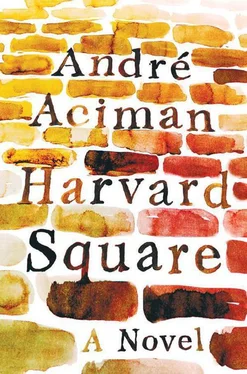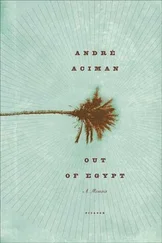My other friends who had stayed in Cambridge to teach summer classes had also left. Postcards trickled in from Paris, Berlin, Bologna, Sirmione, and Taormina, even Prague and Budapest. One of my fellow grad school friends was doing the Petrarch route, from Arquà to Provence, and wrote that, like Petrarch himself, he was about to ascend Mont Ventoux with fellow medievalists. Next year, he added on his postcard with his stingy, minuscule script, he was planning a climb up Mount Snowdon in Wales; I should come, since I loved Wordsworth. Another friend, a devout Catholic, had set out on a pilgrimage to Santiago de Compostela. Both were to meet in Paris and come back on the same plane before we’d all start teaching this fall. I missed my friends, even those I didn’t like very much. But I owed them money and didn’t mind their extended grace period.
All the summer school kids were gone, as were the foreign students who flocked to take classes at Harvard every summer. Lowell House was empty and its gate padlocked and strapped with a chain. Sometimes, just the thought of stopping by and standing in its main courtyard, flanked by a row of balusters, was sufficient to stir the illusion of Europe. I could knock at the window and ask Tony, the gatekeeper, to open the gate for me, say I needed to get to my office. But I knew that my visit might take no more than a minute or two, and I’d hate to disturb him.
This was a different Cambridge.
As happened every year once its students and most of its faculty were gone by midsummer, Cambridge began to acquire a different, gentler, working-class character. The pace slackened; the barber would stand outside his shop to smoke a cigarette, salesclerks at the Coop would be chatting it up among themselves, the waitress at Café Anyochka would still not have made up her mind whether to leave the glass door open or if it was time to turn on their rickety air conditioner. Cambridge in early August.
I was staying the whole summer, holding a very part-time summer job in one of the Harvard libraries. The job paid a puny sum per hour. To make ends meet I tutored French. Money went toward rent. Other priorities were: food, cigarettes, a drink whenever possible. When money ran out, which it inevitably did by the end of each month, I’d put on a shirt, a jacket, and a tie and have lunch at the faculty club, where, amidst the established Harvard faculty and visiting dignitaries, I would eat on credit. I had failed my comprehensive exams in January, which left me just one more chance to retake them. I was reading books for my second try, scheduled for early in the new year, always lugging books wherever I went. Inside me I had the sinking feeling that graduate school would wear on and on with no end in sight till, before I knew it, I’d turn thirty, then forty, then die. Either this, or I’d flunk my comprehensives again, and they’d find out what they probably suspected all along: that I was a fraud, that I was never cut out to be a teacher, much less a scholar, that I had been a bad investment from the get-go, that I was the black sheep, the rotten apple, the bad seed, that I’d be known as the impostor who’d hustled his way into Harvard and was let go in the nick of time. All I’d been doing these past four years was hide from the merciless world outside the academy, burying myself in books all the while resenting the very walls that sheltered me and made it possible for me to read more books. I hated almost every member of my department, from the chairman down to the secretary, including my fellow graduate students, hated their mannered pieties, their monastic devotion to their budding profession, their smarmy, patrician airs dressed down to look a touch grungy. I scorned them because I didn’t want to be like them, but I didn’t want to be like them because I knew that part of me couldn’t, while another wanted nothing more than to be cut from the same cloth.
When I was not working at the library, I would go upstairs on the roof terrace of my building to sunbathe — with my folding chair, my bathing suit, my cigarettes, my books, and an endless string of watered-down Tom Collins which I dutifully replenished every two hours or so in my apartment, situated right under the terrace. I had taken the magnum bottle of Beefeater gin at the end of a departmental party in late spring; the bottle had a long way to go yet. I liked to read while listening to music. Often a couple sat next to me, reading and drinking as well. One of them, in a bikini, liked to chat every once in a while. She introduced me to John Fowles. I introduced her to Tom Collins. Sometimes she brought cookies or sliced fruit. On that terrace above the fourth floor overlooking Cambridge, all I had to do was stare at my book, smell the suntan lotion around me, and, in the silence of a weekday morning right there on Concord Avenue, drift away and think I was finally lying by some beach on the Mediterranean, or my long-lost Alexandria which I knew I would never again set eyes on except in sleep.
Sometimes I would offer to fill an iced drink on my next trip downstairs for another neighbor who like me was also reading for her orals. She’d accept, and for a few seconds we would talk. I loved her glistening tan shoulders and slim, bare feet. But before I was able to have a conversation with her, she’d be back to reading. Was my music too loud? No, it was fine. Sure it wasn’t bothering her? It didn’t. Apartment 42 was clearly not interested. Apartment 21, who also came up to sunbathe sometimes, was a bit more talkative, but she lived with her twin sister, and there were times when I could hear them go at each other, some of the vilest insults I’ve ever heard flung between two humans. Better stay away — though the idea of twin sisters in the same bed at the same time never failed to arouse me. Apartment 43, who lived next door to me, already had a boyfriend, which explained why she was so seemingly forthcoming. Like me, they were both in their mid-twenties. In the morning, they would leave the building together, the spitting portrait of the world’s healthiest relationship. She’d accompany him to the Square, where he’d catch the train to Boston and she’d turn around with their collie and come back by way of the Cambridge Common. We shared the same service landing, their kitchen door facing mine. They liked pancakes in the morning. Sometimes, the smell of their breakfast wafted into my kitchen, especially when I opened my service door and they left theirs open for cross-ventilation, which is when I’d catch them in boxers and pajamas. On weekends they cooked French toast and bacon. I loved the smell. It stood for family, hearth, friendship, domestic bliss. People who cooked French toast lived with people, liked people, understood why people needed people. In three years, tops, they’d have children. On Saturdays sometimes he would head off to work. Later she’d come upstairs on the terrace in her bikini, eager to make small talk, carrying a towel, suntan lotion, and always something by a British author. Did she know I could hear her passionate cries at night? I was sure she knew.
When she stepped onto the roof terrace on Sunday mornings carrying her folding chair, she’d beam a smile at whomever was lounging there, amused, sly, and self-conscious. She wanted me to know she knew I knew. But it stopped there. When I would take a break and offer to bring her a Tom Collins, she’d decline with a smile — as always amused, sly, and self-conscious. She knew what I was thinking.
On weekday mornings, I loved to look down from my window and watch them leave. Their life was perfectly rounded. Mine had transcendental homelessness written all over it. They headed out and came back, while I stayed put, getting progressively more tanned, more bored. There was nothing to do but read all day. I was not teaching, barely tutoring; I was not writing; I didn’t even own a TV. I would have loved to drive out somewhere. But no one I knew had a car. Cambridge was a fenced-in, isolated strip of parched land.
Читать дальше












